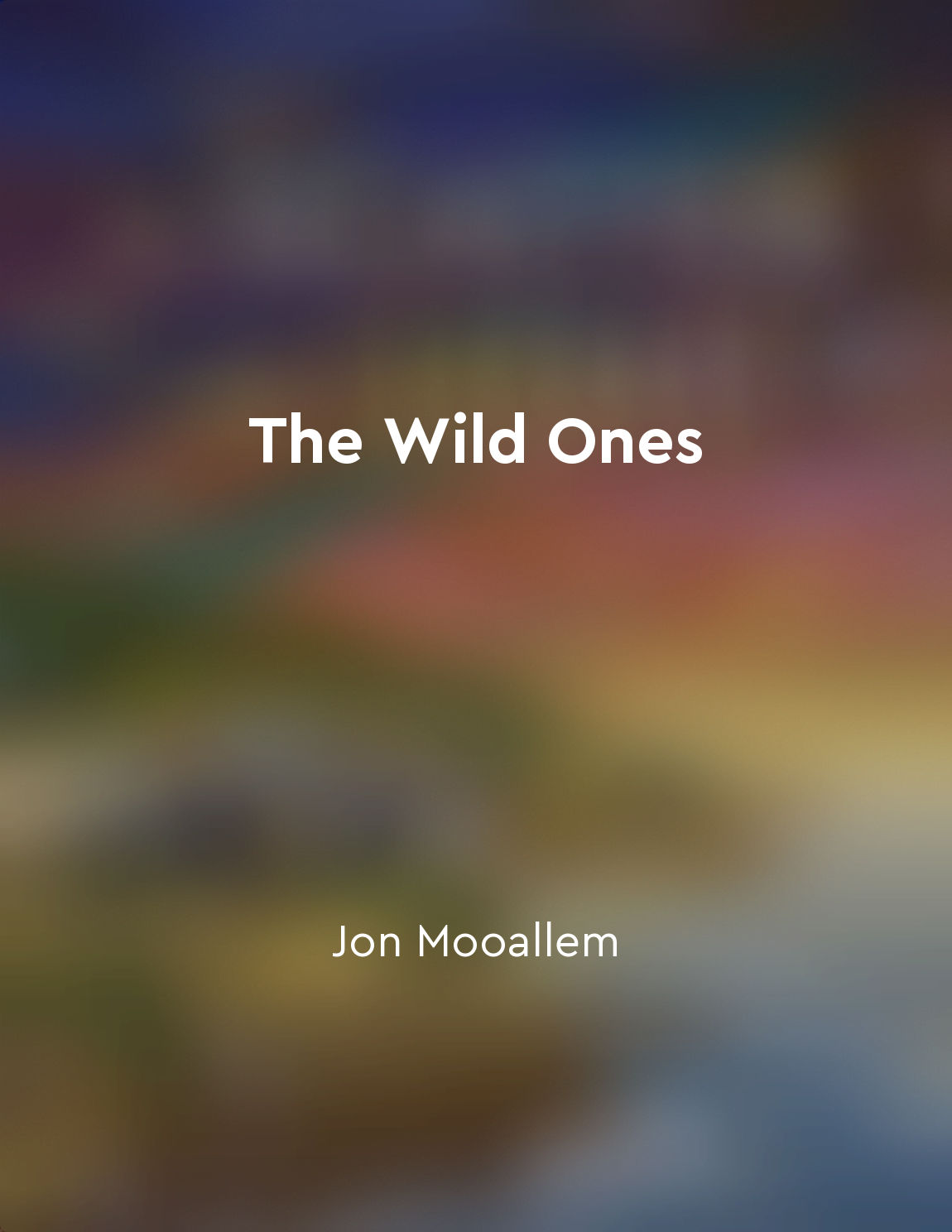Feminist perspective on ecology from "summary" of The Death of Nature by Carolyn Merchant
Carolyn Merchant presents a feminist perspective on ecology that emphasizes the interconnectedness of human society and the environment. This perspective challenges the dominant cultural beliefs that have led to the exploitation and degradation of nature. By analyzing historical texts and cultural narratives, Merchant reveals how women and nature have been subjugated through patriarchal ideologies that prioritize domination and control. Through her analysis, Merchant uncovers the deep-rooted beliefs that have shaped our understanding of the natural world. She argues that the dichotomies of nature/culture, reason/emotion, and male/female have perpetuated a hierarchical view of the world that has justified the exploitation of both women and nature. By exposing these dualisms, Merchant calls for a reevaluation of our relationship with the environment and a recognition of the intrinsic value of all life forms. Merchant also highlights the role of science in perpetuating the domination of nature. She traces the history of science from the mechanistic worldview of the Scientific Revolution to the emergence of ecology as a holistic science that recognizes the interconnectedness of all living beings. Through her analysis, Merchant shows how feminist perspectives can challenge the objectification of nature and promote a more sustainable and ethical approach to environmental issues.- Merchant argues that a feminist perspective on ecology offers a new paradigm for understanding our place in the world. By recognizing the interconnectedness of all life forms and challenging patriarchal ideologies, we can create a more harmonious relationship with the environment. This perspective not only offers a theoretical framework for addressing environmental issues but also provides a moral imperative to protect and preserve the natural world for future generations.
Similar Posts
Reproductive rights are a feminist issue
Reproductive rights are not just a health issue; they are a feminist issue. When we talk about reproductive rights, we are not ...

Animals adapt to changing environments
In the natural world, animals have a remarkable ability to navigate the challenges presented by a constantly changing environme...
Humboldt's writings continue to resonate with contemporary issues
Andrea Wulf’s exploration of Alexander von Humboldt’s life and works in “The Invention of Nature” reveals the enduring relevanc...
We are witnessing the end of natural systems
The world as we know it is changing rapidly, and not for the better. We are no longer simply observers of nature; we are active...
Ecosystems are under threat from human activity
Human activities have brought about significant changes to ecosystems. We have altered the very foundation of the natural world...
We are witnessing the end of natural systems
The world as we know it is changing rapidly, and not for the better. We are no longer simply observers of nature; we are active...
Exploitation of natural resources
The exploitation of natural resources is a pervasive theme in the history of Western science and technology. From the early mod...
Urbanization alters ecosystems
Urbanization transforms the natural world in profound ways. As cities expand, they swallow up surrounding ecosystems, replacing...

